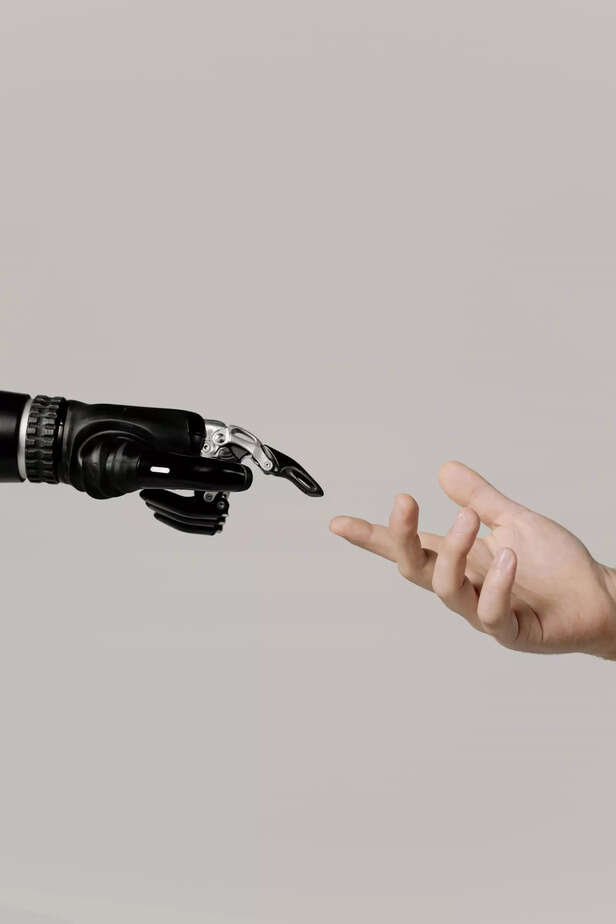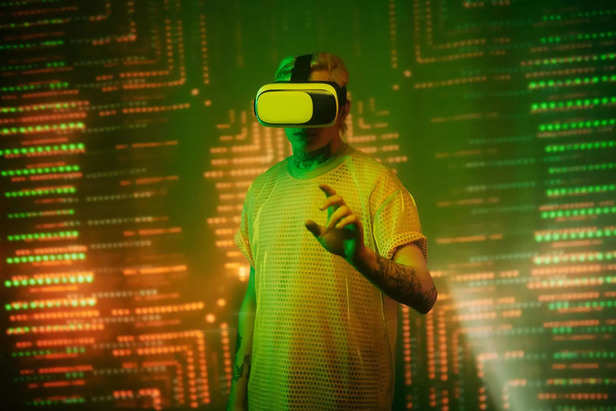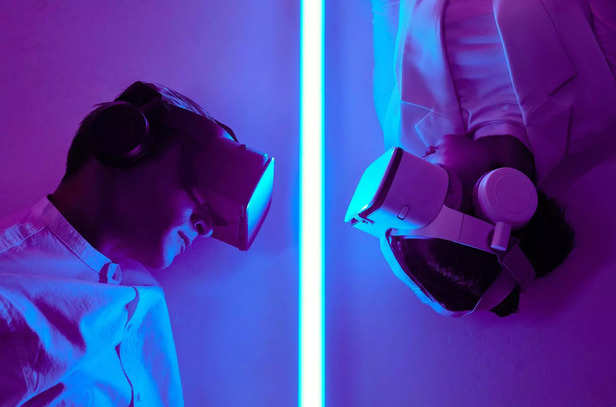AI is Coming for Your Job—But Will It Also Raise Your Salary?
Ankita Rai | Thu, 03 Apr 2025
AI is transforming industries and shaking up job markets, leaving professionals wondering—will high-paying careers survive? While AI threatens roles in finance, law, and healthcare, it also creates new opportunities. The key to staying ahead? Adaptation. This article explores which jobs are at risk, which are AI-proof, and how salaries might shift in an AI-driven world. Will you compete with AI or use it to your advantage?

( Image credit : Pixabay )
Photo:
Artificial intelligence (AI) is not just a buzzword — it’s a game-changer. It’s changing the way industries operate, and it’s even changing the way we work — and making us question if we’ll even be working at all. The big question? Is AI going to steal lucrative jobs and make work more competitive for people or is it going to create a lot of new jobs — and potentially lead to higher wages?

Automation has been taking manual jobs for decades — but AI is different. It’s not only automating repetitive work — it’s learning, analyzing and even making decisions. But that leaves an unsettling question: if AI can think, analyze, and execute better than humans, why wouldn’t it seize high-salary careers?
A report published in 2023 by Goldman Sachs estimated up to 300 million full-time jobs could be displaced globally by AI. That sounds scary, but here’s the kicker: A.I. is not only wiping out jobs — it’s also generating new ones, too. In large part, AI is more of a supercharged assistant than a complete replacement. Consider it Iron Man’s get up — without Tony Stark, it’s just some metal.

There is a considerable variation in the best paying jobs. Some draw on technical know-how and data crunching — skills that AI excels in — while others require human intuition, creativity and social intelligence. Here’s who’s at risk:
AI-based trading algorithms analyze market movements more quickly than any human ever could. For razor-sharp investment management — at often a fraction of the cost of human advisors — there are robo-advisors. But for nuanced financial regulation and high-stakes negotiations, human brains are still best.
AI is already doing contract reviews, legal research and case analysis — work that used to need an army of junior associates. But would AI be able to replicate the ability of a top-tier lawyer to read a jury, maneuver through gray areas of the law, or win a heated courtroom brawl? Not anytime soon.
It can diagnose diseases more quickly than many doctors and help with surgeries. But would you want a machine to break the news to you about a life-changing diagnosis or make a snap decision in the E.R.? Medicine is as much about human connection as about precision, and so there will always be a need for doctors.
You’d think tech jobs are safe, but not even programmers are immune. AI models such as GitHub Copilot already produce code, debug errors and assist with workflows. But finding new solutions to complex problems and developing innovative ideas and software still rely on the collaborative genius of people.
What does AI do best — speed, logic, decisions driven by data — and what does it do worst — emotional intelligence, creativity, the big picture? That means some careers are still solidly human territory:

(writers, sculptors, design professionals, etc.)
CEOs, strategists, policymakers
(surgeons, therapists, psychologists)
(electricity, plumbing, tailor-made craftwork)

The effect of A.I. on salaries is not one-size-fits-all. Automation will reduce labor costs in some industries and drive down salaries. Others will watch their paychecks swell as A.I. boosts productivity and expertise.
For example:
AI-helped surgeons could do more surgeries, and the ones they did would be more accurate, increasing their value and income.
AI financial advisors may manage larger investment portfolios, allowing them to make more money.
Or creatives who leverage AI tools that help them create faster and better could use that as bait to demand higher prices.
But here’s the twist: professionals who don’t adapt to AI may find their skills becoming worthless, resulting in job losses and salary reductions.

AI is not the enemy, ignorance is. If you want to remain relevant (and well-compensated), here’s what to do:
–Understand how Vegas works and use it to your advantage instead of battling it.
Creativity, leadership, problem-solving, emotional intelligence are here to stay.
be ahead of the curve by regularly updating your knowledge and skills.
The most intelligent professionals will leverage AI as an asset to complement their expertise, not as a substitute.
The Bottom Line
AI isn’t taking everyone’s job — but it is changing the workforce. Those who embrace this AI-enabled era will be the victors, not the victims. The future of salaries isn’t going to be AI soldiers replacing humans — it will be humans getting “smarter” with the use of AI. Are you ready?
AI Takeover: Getting Real

AI takeover
( Image credit : Pexels )
Automation has been taking manual jobs for decades — but AI is different. It’s not only automating repetitive work — it’s learning, analyzing and even making decisions. But that leaves an unsettling question: if AI can think, analyze, and execute better than humans, why wouldn’t it seize high-salary careers?
A report published in 2023 by Goldman Sachs estimated up to 300 million full-time jobs could be displaced globally by AI. That sounds scary, but here’s the kicker: A.I. is not only wiping out jobs — it’s also generating new ones, too. In large part, AI is more of a supercharged assistant than a complete replacement. Consider it Iron Man’s get up — without Tony Stark, it’s just some metal.
How to Tell Which High-Paying Jobs Are in AI’s Crosshairs

AI and human
( Image credit : Pexels )
There is a considerable variation in the best paying jobs. Some draw on technical know-how and data crunching — skills that AI excels in — while others require human intuition, creativity and social intelligence. Here’s who’s at risk:
Finance & Investment Banking
Lawyers & Legal Professionals
Doctors & Medical Specialists
Software Development & Engineering
The Jobs That AI Can’t (and Won’t) Replace

Virtual reality
( Image credit : Pexels )
Creative jobs
Executive & Leadership Positioning:
Experts in Healthcare
Trendy Skills
Will A.I. Send Salaries Soaring or Sending?

artificial intelligence
( Image credit : Pixabay )
The effect of A.I. on salaries is not one-size-fits-all. Automation will reduce labor costs in some industries and drive down salaries. Others will watch their paychecks swell as A.I. boosts productivity and expertise.
For example:
AI-helped surgeons could do more surgeries, and the ones they did would be more accurate, increasing their value and income.
AI financial advisors may manage larger investment portfolios, allowing them to make more money.
Or creatives who leverage AI tools that help them create faster and better could use that as bait to demand higher prices.
But here’s the twist: professionals who don’t adapt to AI may find their skills becoming worthless, resulting in job losses and salary reductions.
Why you need to stay ahead in the age of AI

AI and Human
( Image credit : Pexels )
AI is not the enemy, ignorance is. If you want to remain relevant (and well-compensated), here’s what to do:






